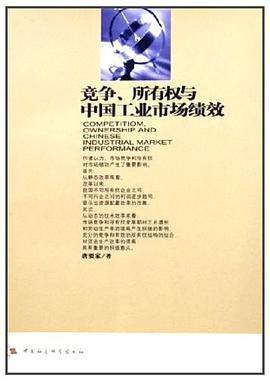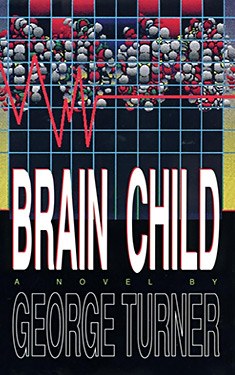

具体描述
Let's face it - life's a challenge. How do we handle life's most important challenges? Do we approach them like an Olympic runner at the starting line, waiting in anticipation for the race, or do we run away from situations that seem too painful or too difficult to face? In Let’s Face It! we learn how to confront and embrace the eight essential challenges of life - including anger, relationships, parenting, and even happiness.
THE CHALLENGE OF ANGER
The Talmud equates an anger-prone person to an idol worshiper, because his own will has become sacrosanct to him, and on the altar of his will he is ready to sacrifice his spouse, his children, his friends, and eventually his whole world. The eighteenth-century mystic, Rabbi Moshe Chaim Luzzato, wrote: "A furious person could destroy the whole world if he were able, because his intellect is not ruling over him at all, and he actually loses his rationality and becomes like all carnivorous beasts."
The anger being excoriated here is the anger which destroys relationships, drowns out rationality, and makes a person say and do things she will later regret. The antidote to such anger is not repression, which often leads to greater problems, but to put the person back in charge of her own reactions.
Impulsiveness
The Maharal of Prague, the great sixteenth-century mystic, wrote that anger is an attribute which is linked to impulsiveness. Let's examine the quality of impulsiveness. According to Mishlei, there are three types of fools: one who is easily convinced of anything, one who trivializes what is ultimately important, and one who is impulsive, who acts on the appearance of the moment.
From these examples it is obvious that being a fool has nothing to do with intelligence. Some very intelligent people are gullible; they can see an ad on the bus, and dial that 800 number to receive their thirty-day free trial of "Hollywood makeup" which promises to make them look twenty years younger. Some very intelligent people will trivialize and joke about everything from decency and modesty to treating the world with respect, to the point of even trivializing murder, oblivious to any genuine sense of values. And some very brilliant people, notably great artists and writers, have destroyed their family lives by acting on an impulse of passion.
Foolishness is not a function of stupidity, but rather a function of the balance between our minds and our bodies. In each of the above cases, the body is acting without the scrutiny of the mind. Although the mind seems to be functioning, presenting justifications for the body's actions, in fact the body is feeding the lines to the mind, which has suspended its intellectual process: "The makeup looked so good on those women in the ad." "Of course I believe that decency is a value, but I can't resist a good laugh." "I don't know what got into me." In every case, intellectual scrutiny would put the mind in control of the body and radically alter the course of action.
THE CHALLENGE OF HAPPINESS
One of the most fascinating scenes I have ever witnessed took place when I was in Las Vegas for a speaking engagement. A friend took me to see the inside of a casino. I was overwhelmed by the excitement, the flashing lights, the neon signs advertising the big name entertainers, the array of food being offered at amazingly cheap prices. Here was an entire district created for no other purpose than to give its denizens pleasure (and to give the casino owners profit, of course). Everything was structured to give people joy, so that they would look back and say, “That was my happiest weekend.” But when I actually entered the casinos, I didn’t see a single smiling face. The people sitting at the gambling tables looked either anxious, or bored, or jaded. I felt like calling out, “Hello! Is anybody here having a good time?”
There’s an inherent irony in the subject of this chapter: Why should being happy be such a challenge? Never before has the world spent so much of its resources and energy in the pursuit of happiness. Billions of dollars are spent annually on the entertainment industry, spectator sports, hobbies, and the acquisition of objects whose sole purpose is to delight their possessors. Yet observably people seem no happier today than a century ago when people spent twelve hours a day working on the farm, ate supper, and went to bed without watching television, surfing the Net, dining at a gourmet restaurant, or shopping at the mall. Why, despite all our prodigious efforts, is it so hard to be happy?
The crux of the problem here is that most people view happiness as an elusive goal which only the fortunate few will ever really attain, like earning a million dollars or weighing 110 pounds. In truth, happiness is a state of mind which every human being can develop with relative ease. It is not dependent on owning anything, and can be attained without having a personal trainer or a custom makeover, or knowing the difference between one vintage wine and another.
作者简介
Our Bodies, Our Souls
Tziporah Heller
Here You Are
Tziporah Heller
Rebbetzin Tzipora Heller, the popular Jewish women's author-lecturer, teaches Jewish self-improvement. Learn how to confront and embrace life's most important challenges.
目录信息
读后感
评分
评分
评分
评分
用户评价
我一直认为,一部伟大的作品需要有其独特的“气场”,一种能够迅速将读者吸入其构建的世界观中的魔力。这本书就是拥有这种魔力的作品。这个构建的世界,无论背景设定是宏大还是微小,都拥有着令人信服的内部逻辑和氛围。从感官上来说,作者对环境的描摹极为出色,我仿佛能闻到空气中泥土的潮湿气味,能感受到那种特定光线下特有的疏离感。这种沉浸式的体验,得益于作者对细节的执着。他不会浪费笔墨在不必要的地方,每一个环境描写、每一个道具的出现,似乎都承载着深层的象征意义,服务于整体的主题。阅读过程更像是一场感官的冒险,我不仅是用眼睛在看字,更是用全身心在体验那个世界正在发生的一切。这种强大的代入感,是很多畅销书难以企及的高度。
评分我对这类探究人性复杂性的作品一直抱有极大的热情,而这本新书无疑又为我的书单增添了一部里程碑式的作品。作者没有采取简单的二元对立的手法去刻画角色,相反,他将“善”与“恶”、“理性”与“感性”的边界模糊化,呈现出的是一幅幅立体而又充满矛盾的人性图景。那些所谓的“反派”,他们的动机和挣扎同样具有令人信服的说服力;而那些被塑造成“英雄”的角色,其内心的幽暗角落也毫不留情地被揭示出来。这种毫不妥协的真实感,让人在阅读过程中不断地进行自我审视和反思。它迫使你跳出固有的道德框架去理解人物的行为逻辑,体会到生活本身的灰色地带。情节的推进并非依靠突兀的事件爆发,而是源于角色之间微妙的权力博弈和情感纠葛,这种由内而外散发的张力,比任何外部冲突都来得更加震撼和持久。看完后,我感觉对身边某些人的看法都有所改变,这本书真正做到了拓展读者的认知边界。
评分这本书的文字功底简直是神来之笔,作者对语言的驾驭能力达到了炉火纯青的地步。每一句话都像精心雕琢的宝石,闪耀着独特的光芒。我尤其欣赏作者在描绘人物内心世界时的那种细腻和深刻。那些微妙的情感波动,那些难以言喻的挣扎与欣喜,都被作者捕捉得淋漓尽致,仿佛我们能直接潜入角色的灵魂深处,感受他们的每一次心跳。叙事节奏的掌控也堪称一绝,时而如春日溪流般潺潺前行,娓娓道来;时而又像暴风雨前的积雷,层层推进,将悬念和张力推向高潮。读到某些段落时,我甚至会情不自禁地停下来,反复咀嚼那些精妙的措辞和巧妙的比喻,那种阅读的愉悦感是久违的、甚至是前所未有的。它不仅仅是一个故事,更像是一场语言的盛宴,让人沉醉其中,久久不愿醒来。这种对文字的极致追求,使得整本书的质感得到了极大的提升,即便是最寻常的场景,在作者的笔下也焕发出了不一样的生命力。
评分从纯粹的阅读体验上来说,这本书的“可读性”达到了一个非常高的水准。它成功地平衡了文学性和通俗性之间的鸿沟。虽然主题深刻,探讨的问题严肃,但作者的笔触却异常轻盈流畅,完全没有那种高高在上的学术腔调。对话是这本书的一大亮点,角色的口吻、用词习惯,乃至彼此间的交流方式,都极具辨识度,真实到仿佛能听到他们就在你耳边交谈。这种自然流畅的对话,极大地推动了情节发展,也让角色的性格呼之欲出。它不是那种需要反复查阅注释才能理解的晦涩文本,而是一本让你在不知不觉中,一口气读到天亮的书。这种让你心甘情愿地牺牲睡眠时间去追逐故事发展的能力,本身就是对作者叙事魅力的最好证明。读完后,我唯一的遗憾就是篇幅不够,真希望作者能再多写一些这个世界的故事。
评分这本书的结构设计实在太巧妙了,有一种精密钟表的机械美感。它不是那种线性叙事,而是采用了多重时间线和视角的交织手法。一开始读的时候,可能会因为信息量较大而略感吃力,不同的时间点、不同的叙述者,他们的故事线索像散落的珍珠,让人费神去梳理。但正是这种初期的挑战性,换来了后期豁然开朗的巨大满足感。当那些看似不相干的碎片最终在某个关键的转折点上完美契合时,那种“原来如此”的震撼感是无与伦比的。作者对伏笔的埋设达到了出神入化的地步,有些线索的回收跨越了数十万字,却在回收的那一刻显得如此顺理成章,仿佛它们从一开始就注定要那样发生。这种高难度的叙事技巧,如果没有极强的掌控力是很容易翻车的,但这位作者做到了,他不仅搭起了复杂的结构,还确保了每条线索都有其存在的意义和美感。
评分 评分 评分 评分 评分相关图书
本站所有内容均为互联网搜索引擎提供的公开搜索信息,本站不存储任何数据与内容,任何内容与数据均与本站无关,如有需要请联系相关搜索引擎包括但不限于百度,google,bing,sogou 等
© 2026 onlinetoolsland.com All Rights Reserved. 本本书屋 版权所有




















